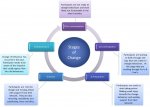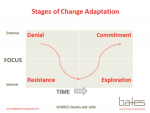-
The Dark Side 💕 Welcome Guest 💕
Posting Rules Bluelight Rules Notable Threads Urgent Hotlines Bereavement Mindfulness Suicide Support Anger Management -
TDS Moderators: AlphaMethylPhenyl | Eligiu | deficiT
You are using an out of date browser. It may not display this or other websites correctly.
You should upgrade or use an alternative browser.
You should upgrade or use an alternative browser.
Your Favorite Books/Podcasts/Blogs on Addiction
- Thread starter herbavore
- Start date
Asclepius
Bluelight Crew
- Joined
- Aug 30, 2010
- Messages
- 8,684
^
...or, green bananas are not necessarily unripe!?...
(or, the importance of engaging Theory of Mind when trying to understand .)
Go easy on the hot-sauce! ??
i think i passed out trying to watch this the first time.
lololol. ?? ol
omg this android is fux'd
thnx ?
edit ?
the message: your stigmatized
if your narrow minded ?
...or, green bananas are not necessarily unripe!?...
(or, the importance of engaging Theory of Mind when trying to understand .)
Go easy on the hot-sauce! ??
Last edited:
Very cool video about SMART recovery, and recovery from drug addiction in general.
He talks about the stages of change, which is an idea that fundamentally changed the way I view addiction/substance use disorders. It is taught in colleges, and is a well understood principal in psychology. Sadly, it isn't talked about all that much, if at all, in places like AA/NA.
The 5 stages of change, the way I was taught(there are a few variations) is as follows:
1. Pre-contemplation: the person isn't considering changing, doesn't see a need for change or problem.
2. Contemplation: the person is considering changing, aware of problem, but unsure of solution.
3. Preparation: the person has discovered a solution, or possible solutions, and is now planning and preparing to take action
4. Action: the person has started taking steps to change behavior.
5. Maintenance: the person continues to progress or maintain change.
These stages are not necessarily linear either, going in order of 1-2-3-4. Most people skip around a bit, going forward, backward, and even skipping steps. It is just a generalized way of organizing your thoughts about change, and a good way to gauge yourself. I find, for myself, if I don't stay vigilant in the maintenance phase(daily schedule, healthy support/family, friends), I quickly start to slip back into the pre-contemplation phase, where I start doubting my whole recovery, thinking it was all BS and that I'm better off using shitty coping skills like getting high to try not to feel bad. After the novelty of this "phase" wears off, I quickly go back to preparation without spending much time in contemplation, as I know what makes me happy and what I desire more than drugs(music, chemistry & science, exercise, real friends). I definitely spend a lot of time in the preparation phase though, as even though I know what I need to do, it is still a struggle to get started. I kind of bounce back and forth between preparation and action, like only smoking a little weed before working out or practicing music, then smoking a lot once I have finished my chores for the day. Or I'll start the day off well, then fall back and reward myself with a smoke or pill at the end of the day.
It's been nearly 2 years since I have stopped using opioids and benzos daily, with only a few relapses. So in that regard, I have made it to the maintenance phase, with exception of the relapses. I still think about pills a lot, mostly benzos, but I have pretty good ways of dealing with those cravings most the time. For me, it's very hard to rationalize use because of how destructive they were in my life.
With weed, I've only made it about 8 months consecutively without any, and maybe another 4-6 months after that only smoking maybe 2-3g a week(not a problem imo). However, it doesn't stay at a manageable level for me and quickly progresses to a problematic level(noticeable functional impairment). The bigger problem is that it quickly leads to old habits that are far more destructive and problematic.
So just wanted to share this with everyone, mostly as a positive reminder to not get down on yourself. People commonly bounce between stages of change, and some even skip over them. I highly disagree with the whole 12 step ideology of having to start over after a relapse. The physiological recovery, namely the neurological recovery, is not discarded because of 1 day of drug use, or even 1+ yr long relapse.
Just to clarify, I think 12step, AA, NA, etc all do great work. The problem I find is that they are often presented as the only way with many cultish views tied to it. Recovery does not need a ton of dogmatic beliefs to work- there is a lot of science(namely psychology and neuroscience) that evidences the reasons why these 12 step groups work. The biggest provable factor in why 12 step groups work is the community(i.e. group therapy).
I'm looking to start my own SMART recovery group in my town, as well as other SMART online recovery groups. If anyone has more info, please msg me. Thanks.
Skip to about 1:00 for relevant. Not entirely about addiction, but I think it's entirely relevant. He talks about phenomenon called "learned helplessness" and it is a trait of many abuse victims, and probably not coincidentally, people struggling with addiction as well.
They did a study on dogs, where they forced one group to endure an electric shock, and the other group had a way of avoiding or stopping the shock. Later, they retested both groups of dogs in a situation that allowed the dogs to avoid or escape the shock. They found that those dogs that were forced to endure the shock would just accept or not resist the shock, where as the dogs who had always had a way of avoiding it would take action to avoid or stop the shock. It wasn't until a few times of showing the dogs forced to endure the shock that they no longer had to endure it, that they started taking action to avoid the shock.
A similar study done on humans, in which the individuals were asked to perform a task and an annoying noise was playing in the background. One group was given the option to turn it off, the others were not. The group that were given the control to turn the noise off performed better, even if they did not turn off the noise, than the group that was not given control.
This really hit home for me, and back to my childhood to where I literally had almost no control unless I was being disobedient and taking control into my own hands. My mom was too scared to leave, so I had just learned to accept that I must deal with my dad and his shitty moods and controlling and narcissistic personality. Even at 30, I see this linger in me, as when I find myself in a difficult or challenging situation, especially emotionally, my gut response is to give up because "it was hopeless anyways, and I'm not good enough to begin with." or "doesn't really matter what happens, I'll still never be able to be happy", etc.
It is the same type of learned helpless that he talks about in the video. I find myself in a depressive mood, and because I was forced to endure that as a child with no hope of being happy, I think it makes it my "natural" reaction to just lie down, and say my pessimism was right all along. Rather than doing something about it, changing my circumstances or handling the problems that are causing the emotional distress.
Found this really relatable and helpful. There are a lot of things I am not supposed to repeat, or would not tell for fear of causing excessive worry due to my drug use and lifestyle.
Some of these things I notice I already do, like having my own hotel at family events(tent during this last event). Having an out is a great idea as well, I like the idea of having a code word with a safe friend who will help you get out of there, especially since I am terrible at greetings/saying good bye.
I also find that being socially timid/reserved in conversations, and generally try to avoid them at all costs, I tend to just agree in attempts to fit in and feel like I need to agree or hide my disagreement. I like the idea of just being my quiet self, and also have found that being honest in a respectful way tends to lead to interesting conversation.
Not being completely trashed, or really high at all, also really helps me feel more confident in social situations. I don't feel like the alien in another world trying to communicate, and assuming I'm not in withdrawal or severe PAWs, I feel much more like myself and thus expressing myself is so much easier.
CBT and learning to identify cognitive distortions has really helped me more than I could imagine, both working with a counselor at first then continuing it own my own. Also, studying some psychology and common mental illnesses has made it easier to understand rather than react in anger or judgement. Practicing mindfulness has made it easier to be more accepting of other's shortcomings or difficult emotions, not that I"m close to perfect, but knowing that someone may be having a bad day and do something hurtful that it's really a reflection on what's going on with them rather than a truthful statement about me.
RV Mystery Journey
Bluelighter
- Joined
- Mar 3, 2020
- Messages
- 99
Nice thread. I don't think I need to add to it.
Then why post?
I see. My favorite not what I think is great to recommend.
How about something I never listened to but look on highly?
I guess Aubrey Marcus but like I am not listening to him just saying if I had to answer I would listen? Sorry.
Edit: Not that video of Aubrey's. I guess I said it because of his plant medicine talks and trials. I believe in the power of plants as medicine even to help heal addiction.
Like I think focusing on addiction books is something I did routinely at one point yet I don't want to call any a favorite in retrospect LOL. Probably something unrelated specifically to addiction but still helpful for recovery? If that makes sense sorry no example for that.
Then why post?
I see. My favorite not what I think is great to recommend.
How about something I never listened to but look on highly?
I guess Aubrey Marcus but like I am not listening to him just saying if I had to answer I would listen? Sorry.
Edit: Not that video of Aubrey's. I guess I said it because of his plant medicine talks and trials. I believe in the power of plants as medicine even to help heal addiction.
Like I think focusing on addiction books is something I did routinely at one point yet I don't want to call any a favorite in retrospect LOL. Probably something unrelated specifically to addiction but still helpful for recovery? If that makes sense sorry no example for that.
Last edited:



